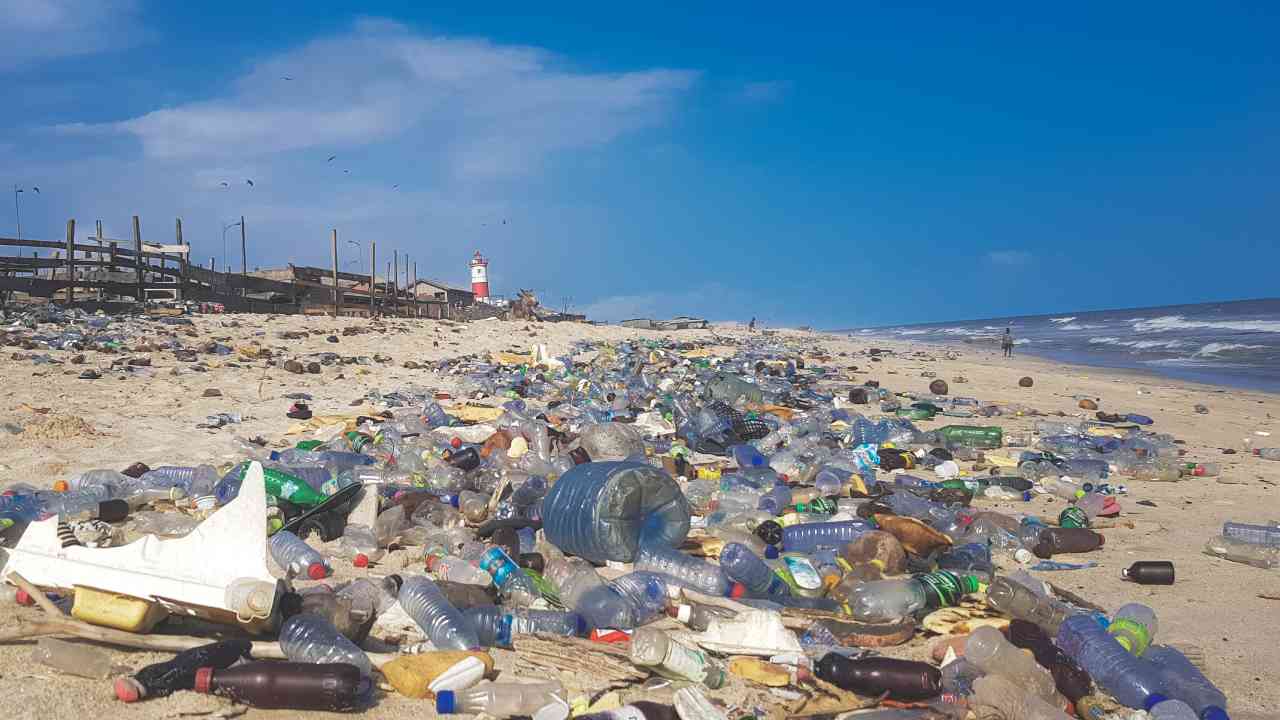Annual production of fossil fuel-based plastics is set to top 1.2 billion tonnes by 2060 and waste to exceed 1 billion tonnes, according to a report by the Organisation for Economic Co-operation and Development (OECD)
The report said growth will be driven by population and economic growth, with emerging economies in sub-Saharan Africa and Asia expected to grow the most.
According to the OECD, plastics production will nearly double in less than 40 years, despite aggressive measures to reduce demand and increase efficiency.
However, these integrated global policies could increase the proportion of plastic waste to be recycled from 12% to 40% in the future.
The international community is becoming increasingly aware of the scope, prevalence and impact of plastic pollution.
Microplastics have been discovered inside fish in the deepest recesses of the ocean and trapped inside Arctic ice.
It is estimated that this has led to the deaths of more than a million seabirds and over 100,000 marine mammals each year.
“Plastic pollution is one of the biggest environmental challenges of the 21st century, causing enormous damage to ecosystems and human health,” said OECD President Mathias Corman.
Since the 1950s, about 8.3 billion tons of plastic have been produced, of which more than 60% have been dumped in landfills, incinerated, or directly into rivers and oceans.





























